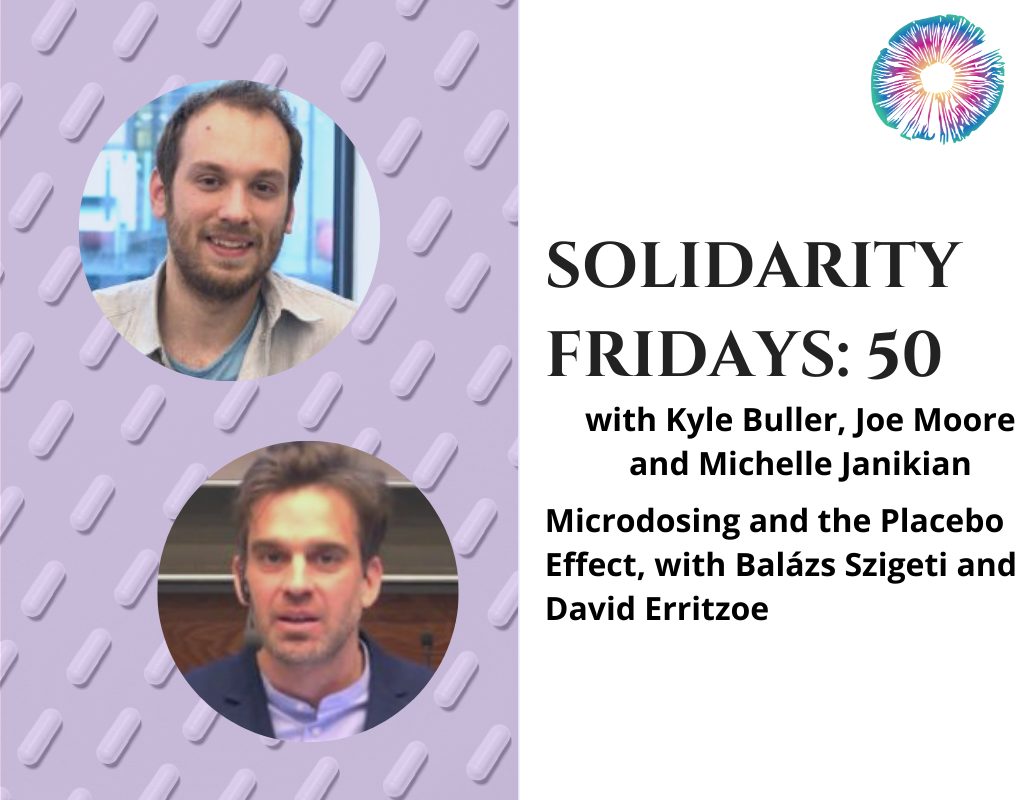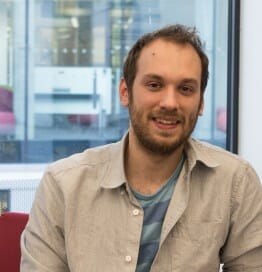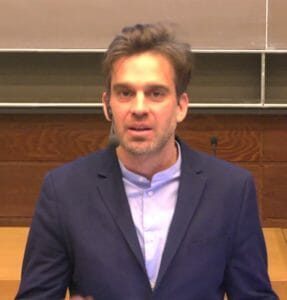
Research
PTSF50 – Microdosing and the Placebo Effect, with Balázs Szigeti and David Erritzoe
March 12, 2021
In last week’s Solidarity Fridays episode, Kyle, Joe, and Michelle talked a lot about a landmark new trial to study microdosing and the placebo effect. And this week (the big SF50!), they’re joined by 2 key members of that very trial, lead researcher Balázs Szigeti and principal investigator David Erritzoe.

In last week’s Solidarity Fridays episode, Kyle, Joe, and Michelle talked a lot about a landmark new trial to study microdosing and the placebo effect. And this week (the big SF50!), they’re joined by 2 key members of that very trial, lead researcher Balázs Szigeti and principal investigator David Erritzoe.
Szigeti and Erritzoe explain all the factors of the trial in great detail: how participants blinded themselves and the complications with capsule weight (and burping?), what substances participants took, how they were able to track which participants were in which group, what “breaking blind” meant specific to this trial, how they essentially used cognitive performance tests as a control, how depression factored in (or didn’t), why they specifically chose people with experience in psychedelics, and why this study mimics real-life microdosing so perfectly.
And they talk about the fascinating results: that while across the board, people scored better and felt better after microdosing for 4 weeks, the people who thought they were microdosing did too, and nearly as much.
They’re working on future editions of the trial- one that will likely be much longer in duration and work through the new psychedelic app, Mydelica, and one that will be more traditionally placed in a lab, where they can study the neuroscience present (or maybe not so present) in microdosing.
Notable Quotes
“If you really simplify it, you can say that …in a way, the guess was [a] 10 times better predictor of some of these acute outcomes than was the actual condition- what they actually took.” -David Erritzoe
“I’m not trying to invalidate your experience by saying, “This is placebo,” but I’m saying it could be, because that’s what the trial actually came up with. But it doesn’t mean that those experiences are not real, it’s just that a lot of those effects come from a combination of hoping, believing, expecting things to become better, and then your mind [does] magical tricks. And that’s the beauty of placebo, in particular when it comes to mental health and well-being.” -David Erritzoe
“Based on our data, there is no question that people do better after microdosing. It is just that people feel equally better after they have taken a placebo.” -Balázs Szigeti
“I was in a panel recently about microdosing where the people kept asking, ‘Oh, but what are the mechanisms?’ ‘How is it that microdosing works?’ And I’m like, ‘Let’s maybe start by seeing whether it works.’ It’s only so interesting to find out how something works if it works.” -David Erritzoe
Links
Elifesciences.org: Self-blinding citizen science to explore psychedelic microdosing
Szigeti and Erritzoe’s last appearance on Psychedelics Today
About Balázs Szigeti, PhD

Dr. Balazs Szigeti has studied theoretical physics at Imperial College, but turned towards neuroscience for his PhD studies at the University of Edinburgh. His main work is about the behavioural neuroscience of invertebrates, but he has a diverse scientific portfolio that includes computational neuroscience and driving forward the OpenWorm open science initiative. Balazs is also the editor of the Dose of Science blog that is published in collaboration with the Drugreporter website. Dose of Science discusses and critically assesses scientific studies about recreational drugs. Recently Balazs has started a collaboration with the Global Drug Survey to quantitatively compare the dose of recreational users of various drugs with the scientific literature.
About David Erritzoe, PhD

Dr. David Erritzoe is qualified as a medical doctor from Copenhagen University Medical School and currently holds an Academic Clinical Lectureship in Psychiatry at Imperial College London. Alongside his clinical training in medicine/psychiatry, David has been involved in psychopharmacological research, using brain-imaging techniques such as PET and MRI. He has conducted post-doc imaging research in the neurobiology of addictions and major depression. Together with Prof Nutt and Dr Carhart-Harris he is also investigating the neurobiology and therapeutic potential of MDMA and classic psychedelics.
Support the show!
- Patreon
- Leave us a review on Facebook or iTunes
- Share us with your friends
- Join our Facebook group – Psychedelics Today group – Find the others and create community.
Navigating Psychedelics





